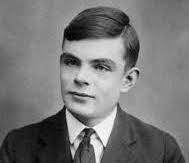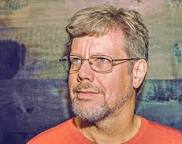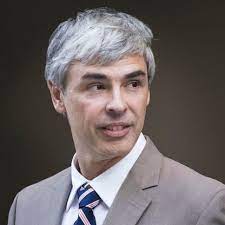

Guido Van Rossum was born on January 31, 1956 in Haarlem, Netherlands and is still alive today. When he was a kid, received an electronics kit on his birthday, which kickstarted his interest for technology. Later on he attended the University of Amsterdam obtaining a master's degree in math and computer science in 1982. After college he worked for many research institutes such as, the Corporation for National Research Initiatives, the US Institute of Standards and Technology, and the Centrum Wiskunde and Informatica. While he worked at the Centrum Wiskunde and Informatic (CWI) he wrote and contributed to a glob routine to BSD Unix. During the 1980s he for several years worked on the ABC system Leo Geurts had developed. In december of 1989, he had decided to work on a side project, as he was bored during the holidays because the office was closed. This project he wanted to do was going to be a descendant of ABC, and it was later named Python. Over time he decided to release the language as a free software. It took a while before it ever became really popular among computer scientists, but over time this computing language became increasingly more popular because of its easy-to-use nature and its capability when using complex logic. Guido Van Rossum later received many awards such as, Advancement of Free Software, NLUUG, Distinguished Engineer by the Association for Computing Machinery, Fellow of the Computer History museum, and was given the honorary title of Dijkstra Fellow by CWI. Python is now the leading computer language around the world, and it's all thanks to Guido Van Rossum.


In his early days, Larry Page attended a Montessori school for his primary grades, and went on to graduate from East Lansing High School. He later became an honors student at the University of Michigan, where he graduated with a bachelor's degree in computer engineering. He then went to Stanford University to study graduate studies in computer science for his master's degree. Afterwards, he took a leave of absence from the Ph.D. program to focus on his business, Google. In the year 2000, still enrolled as a Ph.D. candidate at Stanford, Page attended the Academy of Achievement's International Achievement Summit in London as graduate student delegates. He later returned in 2004 as a recipient of the Academy's Golden Plate Award. Later in his life, Page also received an honorary doctorate from the University of Michigan.
Larry Page, alongside Sergey Brin created the largest internet company in the world, which over 1 billion people utilize. This all began during his time in Stanford University's Ph.D. program, Larry Page met his future business partner, Sergey Brin. For his dissertation, Page wanted to explore the World Wide Web, and he wanted to understand its mathematical properties and find out how many and which web pages link to a specific page, so him and Brin created a combined research project titled "BackRub". This project led to the development of the "PageRank" algorithm. They quickly realized this algorithm could be used to develop a search engine more powerful than any other. Page and Brin registered the domain name "Google.com" in 1997, and were able to officially incorporate their business as "Google, Inc" in 1998. Google began selling text-based advertisements based on searched keywords in 2000, and their ability to deliver ads directly related to the interests of their users made this ad space very valuable. Google has also grown through strategic acquisitions of software and hardware companies with innovative video, teleconferencing, and social networking products in addition to its own product development. Recently, Google has introduced a number of popular services and applications including; Google Maps, Google Earth, Google Book Search, Gmail, Google Chrome, Picasa, Google Calendar, Google Docs, Google Translate, a suite of business tools that include word processing and spreadsheet applications, the smartphone operating system, Android, and Google Fiber, a free wireless broadband service.